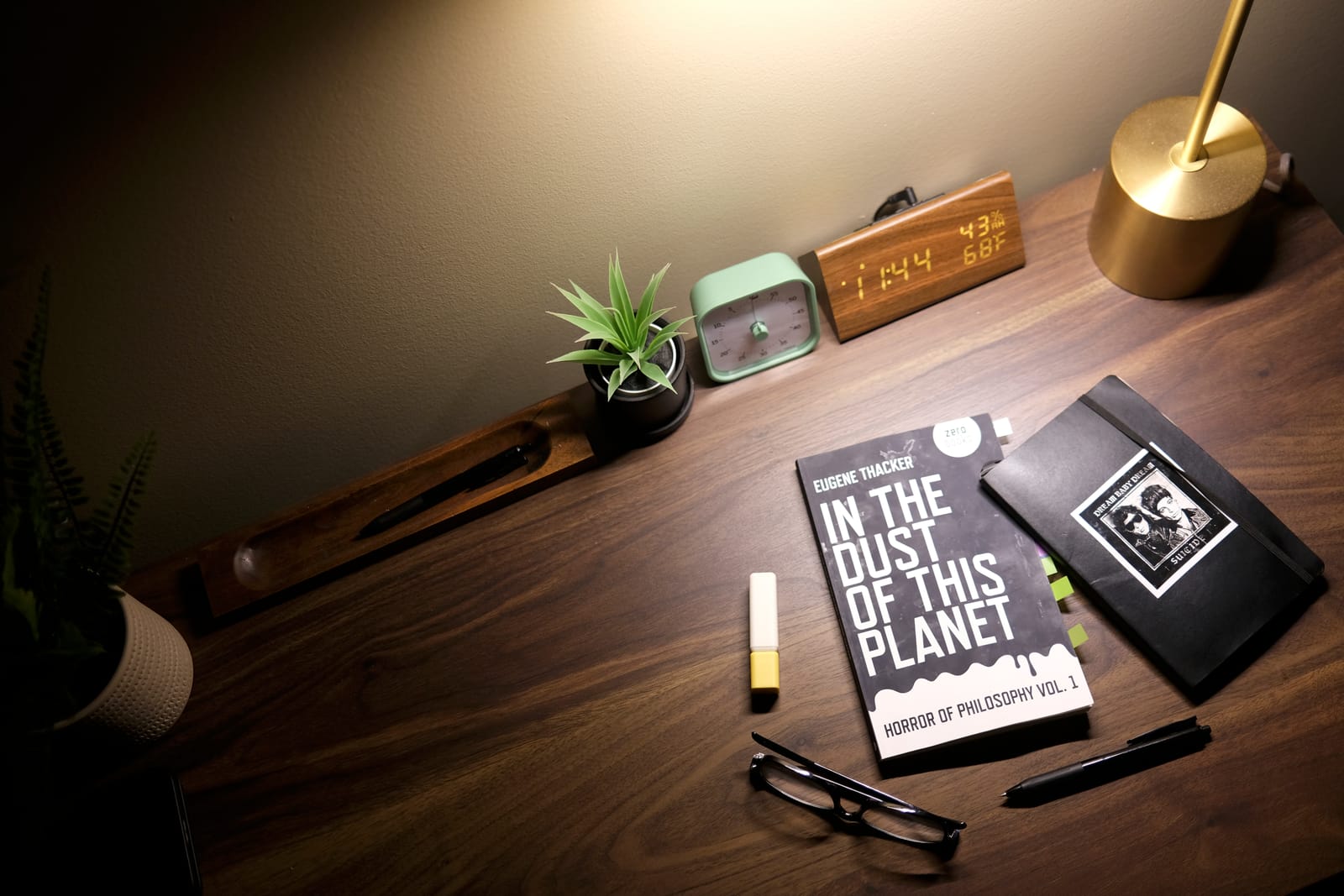I’ve never read HP Lovecraft. I understand him only as an early twentieth-century landmark that casts a long shadow over cosmic horror and as a man who held some noxious views, perhaps even for the early twentieth century. I am, however, reading Eugene Thacker’s extravagant meditation on cosmic horror, and he includes a paragraph that Lovecraft wrote in 1928 as the opening paragraph of The Call of Cthulhu. A century later, it sounds like my relationship with the internet.
"The most merciful thing in the world, I think, is the inability of the human mind to correlate all its contents. We live on a placid island of ignorance in the midst of black seas of infinity, and it was not meant that we should voyage far. The sciences, each straining in its own direction, have hitherto harmed us little; but someday, the piecing together of dissociated knowledge will open up such terrifying vistas of reality, and of our frightful position therein, that we shall either go mad from the revelation or flee from the light into the peace and safety of a new dark age."
I understand less and less these days, yet I know too much: a blast on the other side of the world, shootings across the nation delivered like the weather forecast, something awful that somebody said thirty years ago, the sexual lives of politicians, the opinions of a distant acquaintance on Israel, the fact that a body found in an Ohio nature preserve turned out to be a discarded sex doll, and so on.
Are we standing on the precipice of a new dark age? Probably. I often catch myself thinking, yes, this is what a society circling the drain feels like, and in America, these nineteen days before the election feel genuinely existential. But there’s a phrase from Don DeLillo that refines Lovecraft’s prophecy: “Too much of everything from too narrow a source code.” Which means it’s time to step away from the screen.








